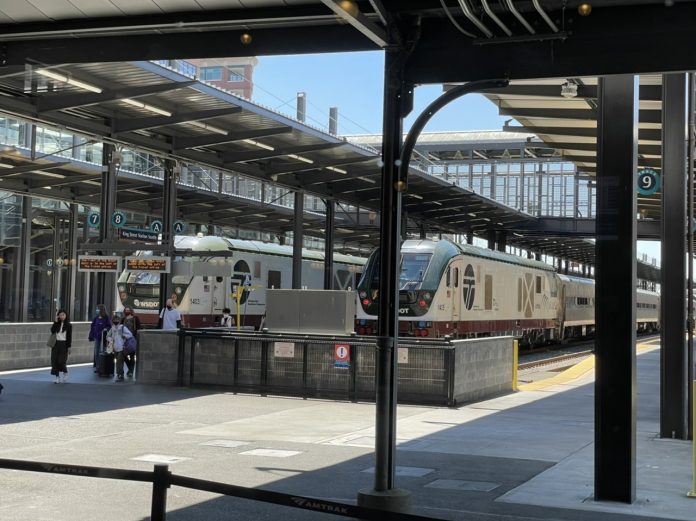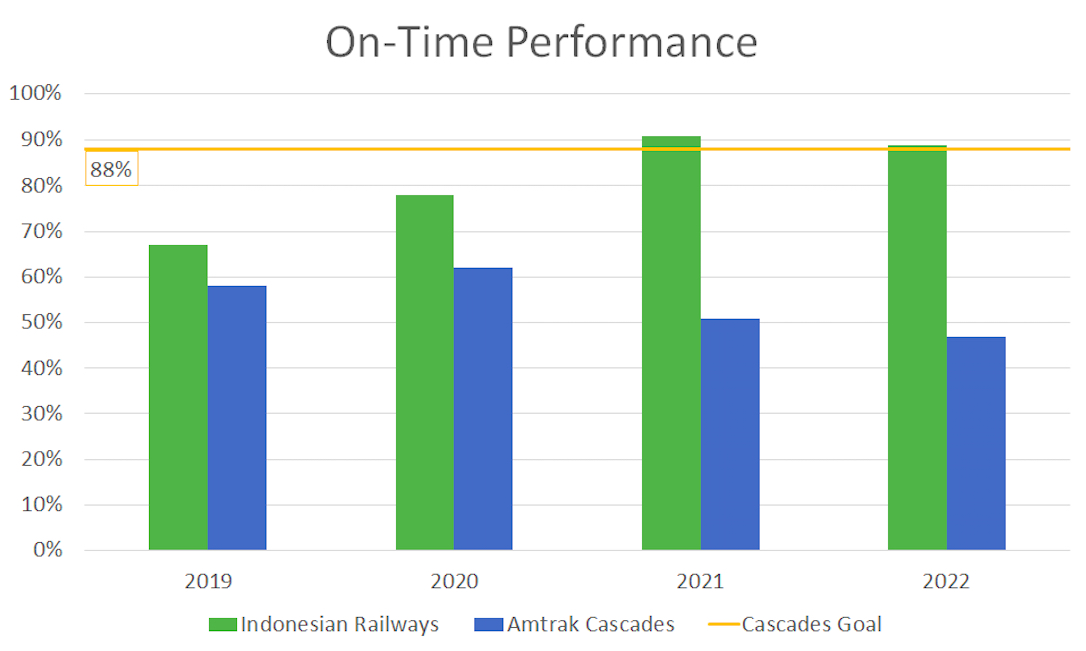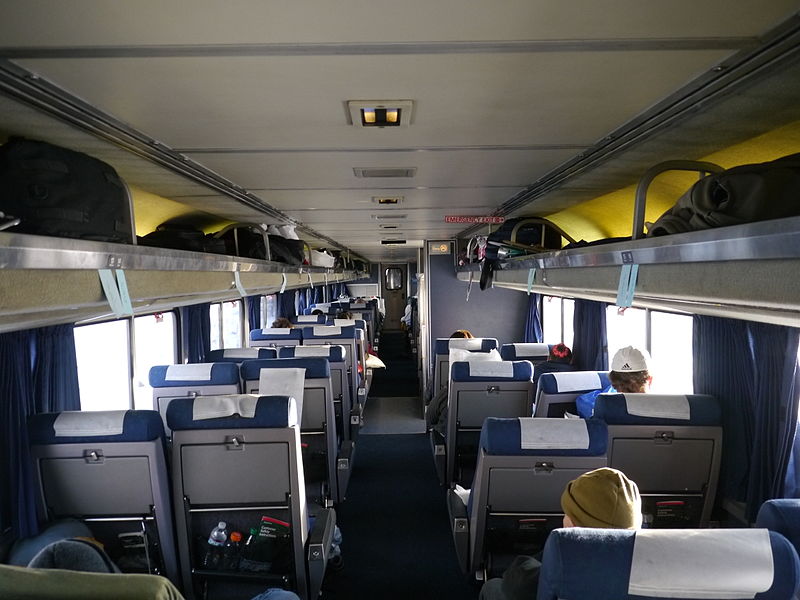
Indonesian Railways’ rapid improvement offers hope for turning around floundering Amtrak Cascades service.
Back in April I attempted to take the train from Tacoma to Portland. The day it was to depart, I was informed we would be placed onto a coach bus in lieu of a train. When I asked why, I was told the previous few days of rain had caused mudslides. This left me with a question: Why is rail infrastructure in the Pacific Northwest not prepared for rain? The highway corridor remained unaffected, after all. As it turns out though, rain is far from the leading culprit behind Amtrak’s delays.
Indonesia exceeds Washington’s on-time goal
Last January I experienced the privilege of visiting Indonesia and riding their punctual trains and traveled 429 miles through Java’s mountainous jungles. The emerald countryside rolled by as their state-owned trains carried me between the cities of Jakarta, Yogyakarta, and Probolinggo. In fact, I had undertaken this journey during the monsoon season, when torrents of rain pummeled the island daily: I’d even boarded a train in the midst of one. It would never have occurred to me that rain might cancel or delay a train there, and the statistics bolstered my confidence: Indonesian trains had an on-time performance of 90% from 2021 to 2022.

How are we to justify Amtrak Cascades’ on-time performance of 47% for 2022? Are we to believe that Washington suffers more cataclysmic natural disasters than Indonesia? While routinely battered by tsunamis, shaken by earthquakes, and subverted by landslides, Kereta Api Indonesia (KAI) — Indonesia’s state-owned railway corporation — exceeds the on-time performance goal of 88% that the Washington State Department of Transportation (WSDOT) has set for its rail service. Among our Pacific peers, Indonesia is closer to Japan than Washington in this regard.
Meeting our own standards
The planet’s wrath — deserve it as we may — is not dragging down the on-time performance of Amtrak Cascades: Weather-related delays or cancellations account for but 1.1% of delayed time, meaning 98.9% of delays are within our control. If we plan and fund responsibly, our state may be capable of achieving what Indonesia did.
Looking forward, WSDOT planners have recalled Desmond Tutu’s dining advice: “There is only one way to eat an elephant: one bite at a time.” The current Cascades Service Development Plan, following this logic, calls for better controlled siding which is when trains move to a short side track to allow passing, triple track extensions, and the acquisition of between six and 11 new trainsets, depending upon how much the legislature invests in rail.
As BNSF bears responsibility for 64.3% of delayed time, projects expanding siding and third track extensions will likely increase on-time performance by ensuring passenger and freight can harmoniously coexist on Washington’s tracks. The plans demonstrate exceptionally good will on the part of WSDOT: They plan to build solutions without invoking intervention against BNSF under federal law, which states passenger rail services hold preference over freight and that the government may intervene to rectify any violations.
WSDOT’s workers possess the will, skill, and plans to meet the goal of 88% on-time performance for the Amtrack Cascades route, all they require now is material support. The legislature in Olympia would be wise to provide the funding they require. It would comply with the state’s legal mandate to reduce emissions and prevent the state’s logistics from getting tangled in federal lawsuits.
If the legislature and governor allocate to rail even half of the $12 billion they plan to burn on new highway projects from 2023-2029 instead of the $0.38 billion they currently plan to invest in all rail, both passenger and freight, WSDOT will successfully consume the Indonesian elephant of 88% on-time performance and ask for seconds. Perhaps then, we can dig into the heaping plate of rail corridor landslide prevention.

Collin Reid
Collin Reid is an educator who moved to the Central District of Seattle in 2024 after having lived and worked in St. Petersburg Russia for eight years. His background in political science and international experiences led him towards urbanism and transportation as the foundational elements of society. He is a member of the Seattle Democratic Socialists of America.


